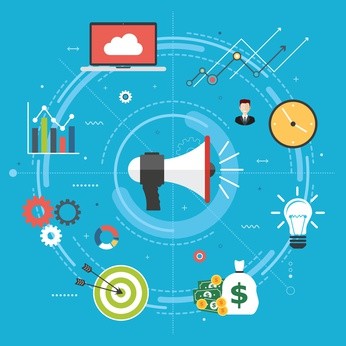JoomConnect Blog
MSP Marketing: 7 Ways to Run a Non-Sales-Related Promotion
Like most people, when you hear the word “promotion,” you probably associate it with the words like “sale” and “discount.” And, while those words are often synonymous with promotion, they shouldn’t always be. Here are some examples of some non-sales-related promotions you can run to promote your company and its products and services.
Why You Should Consider Non-Sales-Related Promotions
Like we’ve discussed before, sales promotions are great at generating sales in the short-term. But, it shouldn’t be the only way that you’re generating sales - it’s not a sustainable business model. You want customers to purchase your products and services because of what differentiates them and your company from your competitors, not just because things are cheaper. So, if all you’re doing is running sales promotion after sales promotion with no other promotional actions besides that, you’ll end up hurting your company’s bottom line over time.
That’s where non-sales-related promotions come in. When no discount is provided, you have to motivate people to do what you want them to do in other ways through some sort of advertisement / marketing material. Yes, the goal is still to generate increased sales more often than not. But, it’s usually focused on goals that benefit the company in the long term such as awareness, engagement, and education. They usually come in the form of campaigns, which are short-term initiatives, or programs, which tend to be ongoing initiatives.
Let us give you some examples:
- Branding or Awareness Campaigns let people know that your company exists, and that you are ready to provide them with the services they need for their company to be successful. This type of campaign is great when you are first establishing your company through your marketing initiatives, have hit a ‘plateau’ in your quest for new customers, or have started offering a new service. It’s important to establish a strong brand identity in these campaigns so that those who aren’t ready to start doing business with you right away will remember your company when they are ready down the line.
- Like/Follow Campaigns encourage people to like or follow your social media pages. This sort of method is only indirectly tied to sales; your goal is to get in front of your audience in places they are already spending a lot of their time. Once you are, if you are harnessing the power of social media correctly (posting regularly, interacting with your followers, boosting your posts, etc.), you will be top of mind when that follower is considering hiring a managed service provider.
- Event Promotion Campaigns inform the audience that you are hosting some sort of live event that they would benefit from attending, like a lunch and learn or a webinar. Since your goal of these events is typically to generate sales in the particular topic you will be educating those who attend your event on, you are only focused on getting people to register for the event in question.
- Contest/Sweepstakes Campaigns typically include some sort of drawing for a prize that people can enter to win. While this does somewhat overlap with the concept of a sales promotion - you are, in fact, giving away something to at least one person - the difference is that the majority of people who enter will not receive that free thing you are offering. And, you will have still collected their information when they registered for your contest or sweepstakes.
- Retargeting Campaigns target those who have shown interest in your company before, often by looking at those who visited your website but did not start doing business with you or from other lost opportunities.
- Loyalty Programs are different from the short-term initiatives described above. They are used to encourage your current customers to stick with you, by offering various perks (1) the longer they stay, and (2) the more they purchase from you. It can be expensive and time-consuming to acquire new customers, so you want your current ones to stay with you as long as possible.
- Referral Programs encourage your current customers to generate new business for you. You DO usually offer the business that referred the other company some sort of reward or discount if the prospect signs on with you, but this type of program is different from your typical sales promotion where you are discounting a product or service for the purchaser.
So as you can see, you don’t HAVE to rely on only discounts to increase your sales. There are many options out there that are designed to do the same thing as a sales promotion, without many of the drawbacks that come with running sales promotions. The one you choose will depend on who your target audience is, and what you are trying to achieve.
Consider Us!
Have an idea of a promotional campaign you want to run, but don’t know where to start? Contact us and we’ll see what we can do to help.




Comments